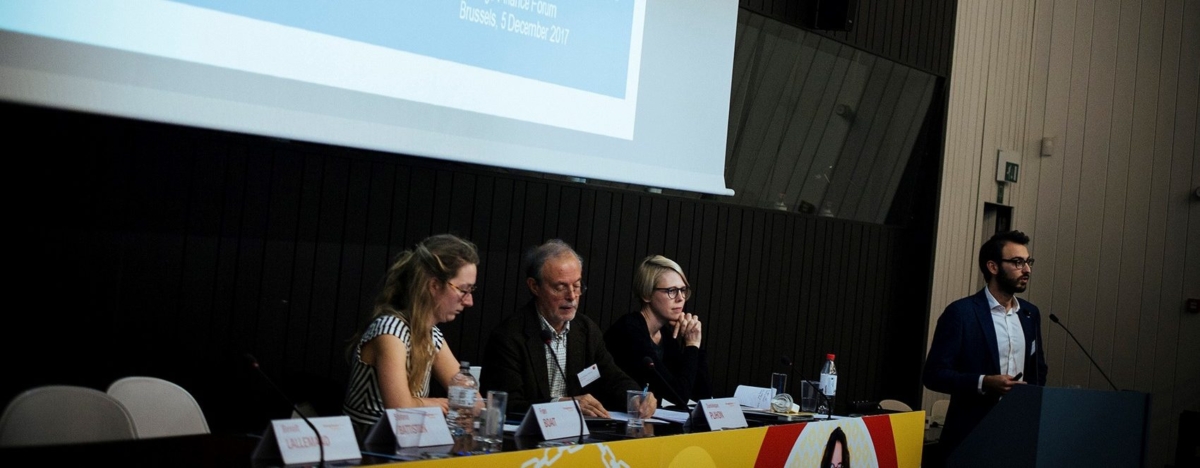Brussels, 06/12/2017. Today, the European Commission proposed a series of long overdue reforms on how the Eurozone is governed, including changes to the European Stability Mechanism, a new EU Finance Minister and a dedicated budget. Recent reports from Transparency International EU have shown how a lack of transparency and accountability has led to weak decision-making around the Euro crisis.
The proposals coincide with the launch of a new Eurozone Watchdog Network of 18 organisations dedicated to monitoring the transparency, accountability and democratic standards of the Eurozone.
The Watchdog Network welcomes the Commission’s focus on more democratic legitimacy and institutional reforms. In the Network Manifesto, the undersigned organisations call on the Commission to begin negotiations on a legal agreement to make the Eurogroup accountable to the European Parliament, ahead of the 2019 EU elections.
“Major decisions affecting us all have been taken behind the closed doors of the Eurogroup for far too long”, said Leo Hoffmann-Axthelm of Transparency International EU. “Member States must stop hiding behind this lack of transparency and take full responsibility for their actions. The Euro must be governed in the interests of European citizens,” continued Hoffmann-Axthelm.
“We have always supported a stronger, more transparent and accountable Eurozone governance”, added Petros Fassoulas, Secretary General of the European Movement International. “We are happy to be part of this initiative, and will continue to advocate for this, including a bigger role for the European Parliament.”
Notes:
- More information on the Watchdog Network can be found here.
- The Network’s Manifesto on Eurozone governance can be found here.
- The studies on Eurozone governance can be found here.
Signatory organisations:
Access Info Europe
Better Europe
European Association for Local Democracy (ALDA)
European Confederation of Independent Trade Unions (CESI)
European Democracy Lab
European Movement International
European Women’s Lobby
Fair Finance Institute
Finance Watch
Positive Money
QE for People
Social Platform
Solidar
Talous Demokratia
Union of European Federalists
UNI Europa
Individual supporters:
- Ulrike Guérot, Prof. for European Policy & Study of Democracy at Donau University
- Nicolas Véron, senior fellow at Bruegel, and a visiting fellow at the Peterson Institute for International Economics
- Rémy Jacob, Former Director-General of the Strategy and Corporate Centre, European Investment Bank
- Philippe Legrain, Former economic adviser to the President of the European Commission and senior visiting fellow at the LSE European Institute
- Vivien Schmidt, Jean Monnet Professor of European Integration, Boston University
- Peter Eigen, Founder, Transparency International
- Christian Joerges, Professor of Law and Society at the Hertie School of Governance
- Constanze Adolf, co-founder, European Semester Alliance
- Benjamin Braun, Max Planck Institute for the Study of Societies, Cologne
- Cornel Ban, Co-Director of the Global Economic Governance Initiative, Boston University
- Rainer Geiger, former Deputy Director, Directorate for Financial and Enterprise Affairs, OECD
- Mark Blyth, Prof. of international political economy in the department of political science at Brown University
- Len Seabrooke, Prof. in International Political Economy, Copenhagen Business School
ENDS




